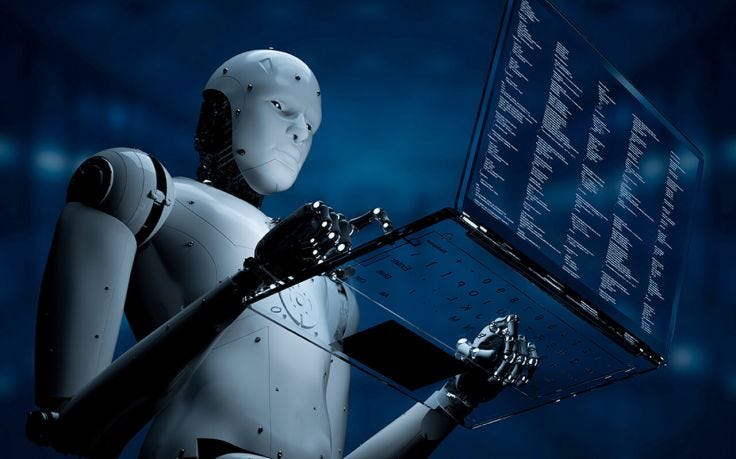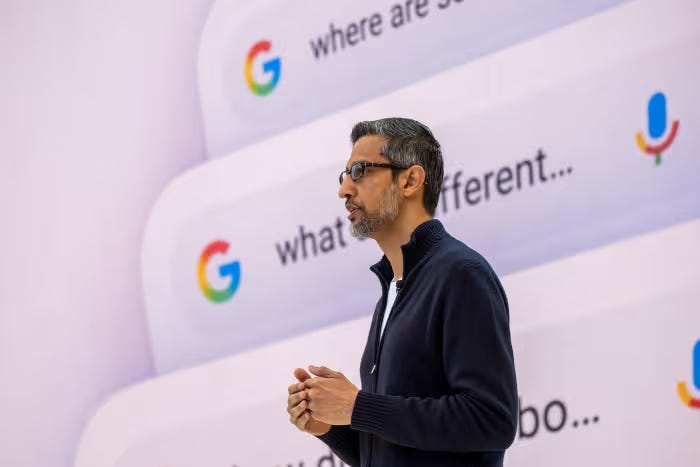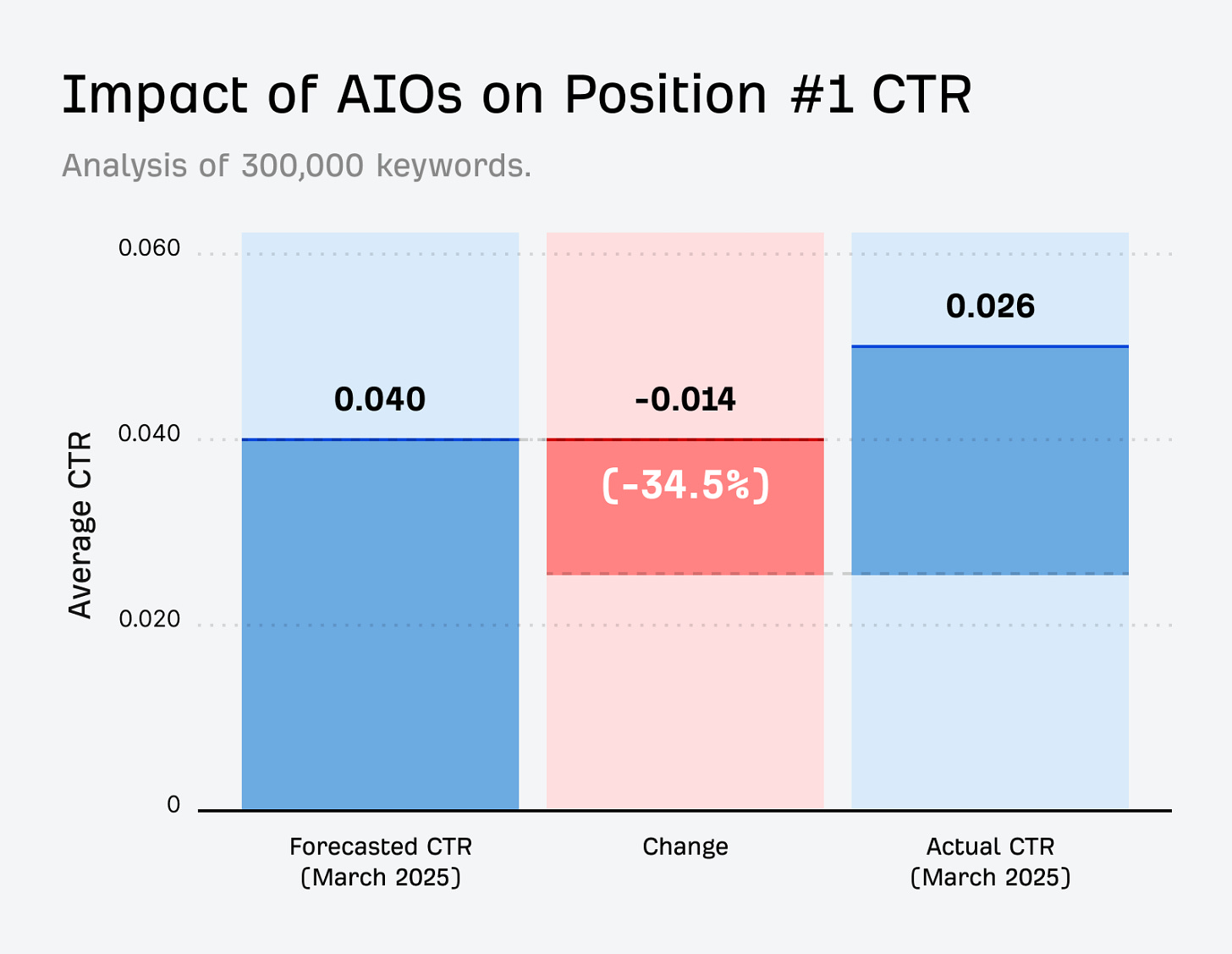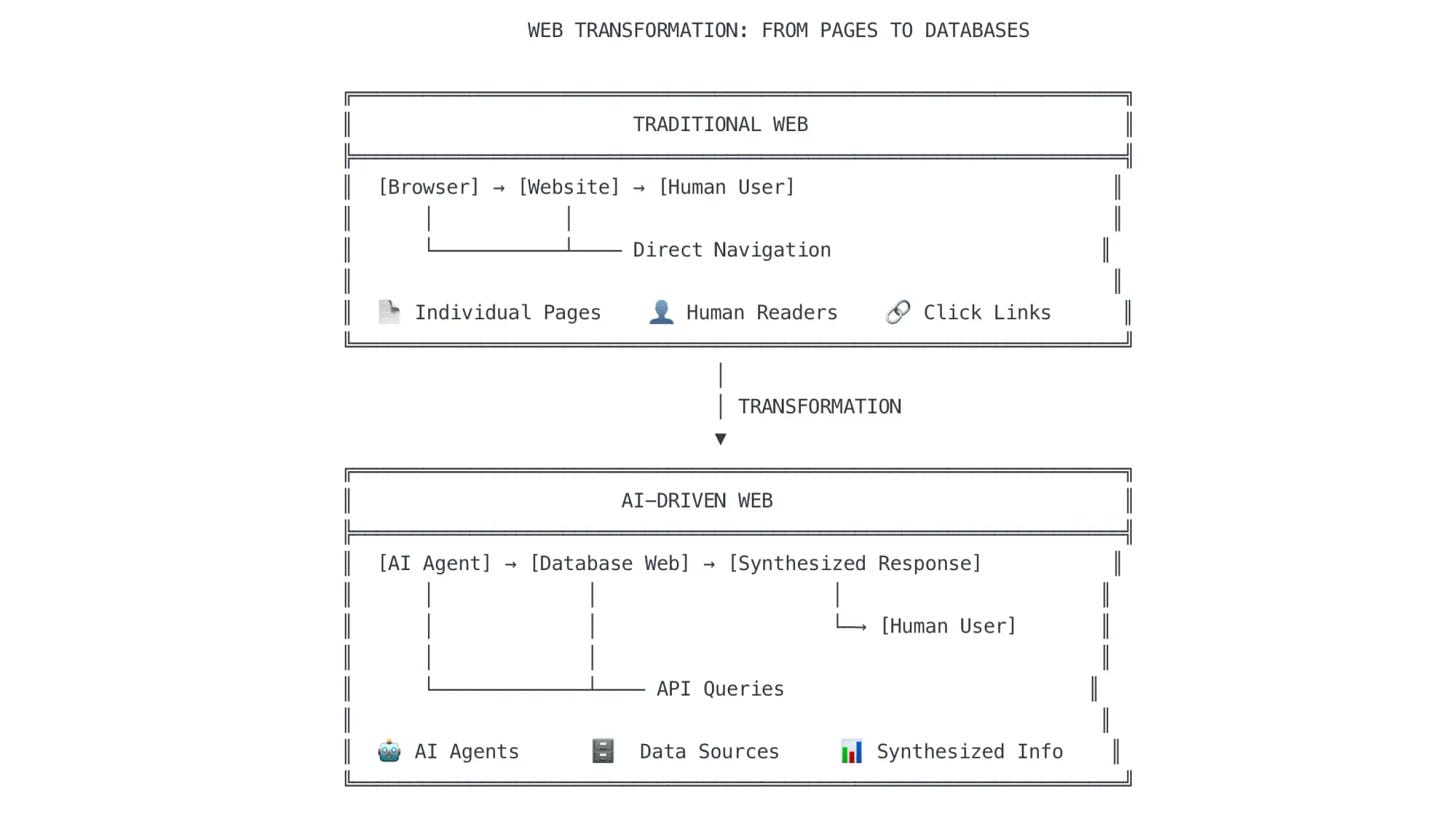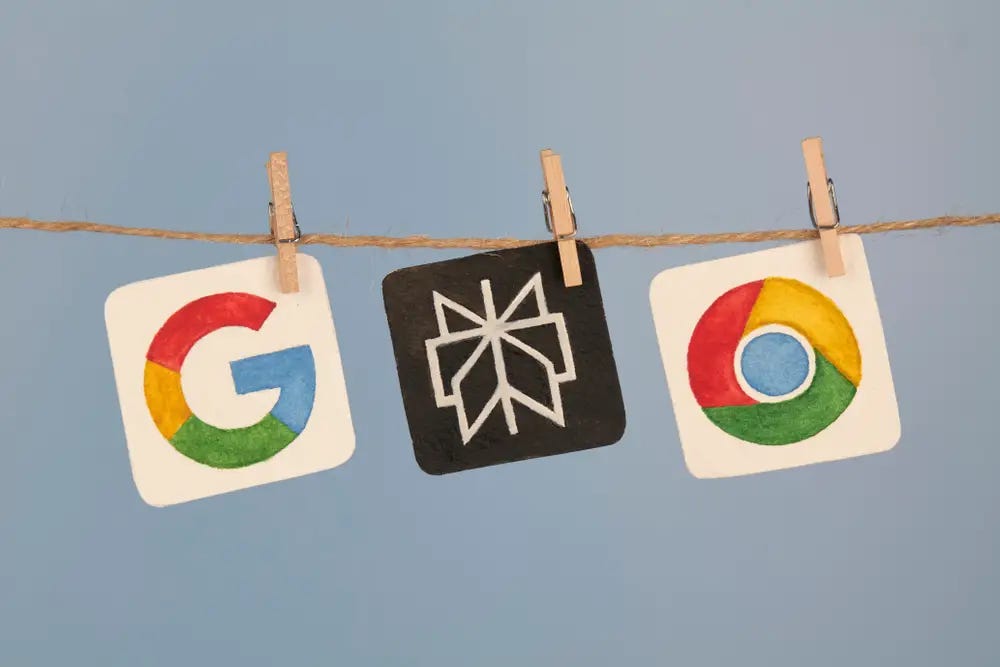The Machine Web and the New Browser Wars
Why the battle for browsers will decide who controls the web’s future
The Web is at an Inflection Point
For three decades, the web ran on a simple bargain: publishers created content, search engines indexed it, and traffic flowed back in return. That loop sustained everything from personal blogs to billion-dollar media empires.
AI is breaking that deal. Google’s AI Overviews and new “AI Mode” summarize answers directly in search results, often removing the need to click through. An analysis conducted by Ahrefs of 300,000 keywords shows a 34.5% drop in clicks for pages competing with AI Overviews. If featured snippets drained traffic, AI Mode threatens to pull the plug entirely.
The question is no longer whether AI will reshape the web, but what kind of web will remain when it does.
From the Human Web to the Machine Web
We’re entering what might be called the “machine web.” Instead of building sites for people, publishers are increasingly optimizing for AI crawlers and agent-friendly formats.
In this world, information isn’t discovered so much as consumed by machines. Rather than browsing blogs, forums, or niche communities, users receive synthesized answers from AI. Publishers don’t compete for human attention; they compete to be included in training data or cited in AI-generated responses.
The gains are clear: speed, convenience, and automation. The losses are harder to quantify: serendipity, diversity, and the sense of the web as a living ecosystem.
Beneath it all lies the real shift: control is moving from humans navigating links to AI managing workflows.
Google’s Gamble: AI Overviews and AI Mode
At Google I/O this May, Sundar Pichai unveiled “AI Mode,” a chatbot interface that replaces traditional search listings. Instead of a page of links, you get a generated article.
Google says this makes search more useful. Critics see it as an existential threat. SEO strategists warn that traffic to independent publishers could collapse. Small businesses fear their products will be summarized away before anyone reaches their site.
Google argues that the clicks that do happen are “higher quality.” But the economics remain unchanged: if AI answers the question, fewer people click. And if fewer people click, the ad-driven web begins to starve.
For two decades, Google has been both the sun and the soil of the open web. Now it risks becoming the shadow looming over it.
The Rise of AI Agents as Browsers
While Google redefines search, others are reinventing the browser. Perplexity’s Comet, OpenAI’s upcoming browser, Microsoft’s Edge with Copilot, Opera’s Aria, and Brave’s Leo all push beyond passive navigation.
These tools are not just browsers. They are action engines. You can ask Comet to find a confirmation email, summarize an article, book a flight, or order a product. OpenAI’s version is designed to keep you inside a ChatGPT-style interface where an agent handles tasks directly.
The paradigm is shifting: less “search and click,” more “ask and delegate.” Browsers are moving from displaying content to performing work.
The Antitrust Wildcard: Chrome in Play
Google’s timing could hardly be worse. After being found guilty of illegally monopolizing search and ads, the Department of Justice may force it to sell Chrome.
If Chrome—the browser used by more than 3 billion people—changes hands, the balance of power shifts dramatically. OpenAI, Perplexity, Yahoo, and even Search.com have expressed interest. For OpenAI, Chrome would instantly fuse ChatGPT with the most popular browser on earth. For Perplexity, it would be a springboard to challenge Google directly.
The browser isn’t just software. It is distribution. Whoever owns Chrome controls the front door to the web.
Browser War 3: What’s Really at Stake
Think of the browser wars as a three-act story:
Browser War 1: Netscape vs Internet Explorer, won through distribution.
Browser War 2: Internet Explorer vs Chrome, won through speed and simplicity.
Browser War 3: Google vs everyone else, with victory hinging on answers, agents, and automation.
This round isn’t about tabs or rendering speed. It is about who becomes the trusted intermediary between human intent and machine execution.
The winner won’t just gain market share. They will define the next interface of the internet.
The Business Model Cliff
If AI handles most queries directly, where does that leave publishers?
Some strike licensing deals: The New York Times with Amazon, Reddit with Google, others with OpenAI. But these arrangements are reserved for giants. Smaller publishers are being hollowed out.
The reality is simple: robots don’t click ads. If bots become the main “audience,” the ad-driven model collapses. No one has yet offered a viable replacement.
The result is a cliff edge. Content creators need revenue to survive, but AI is diverting traffic away. Something has to give.
The Future of Interfaces: Agent-Friendly by Default
Look ahead a few years and the trajectory is clear. Websites will be designed less for human browsing and more for agent access.
Instead of clicking through a travel site, your AI agent will call an endpoint and book the trip. Instead of scrolling Amazon, it will fetch the best option and place the order. The human front end becomes optional—an API for machines to negotiate on our behalf.
The hyperlink-driven metaphor of “browsing” may soon feel as dated as dial-up. The new interface of the internet could be an AI conversation layer that hides the page entirely.
The Machine Web Arrives
The open web isn’t gone, but it is being rewritten.
The winners of the new browser wars won’t just control distribution. They will own the interface between human intent and machine execution. For businesses, that means fewer direct clicks, more intermediated traffic, and the need to design for agents as much as for people.
The last browser wars decided how we saw the web. This one will decide whether we keep seeing it at all.



